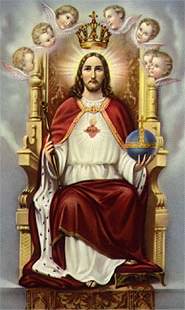While the declared objectives of the “Arab Spring”
include establishing democracy and freedom and improving living conditions in
Arabic-speaking countries, the reality after close to two years of violence and
instability shows an upheaval that threatens the survival of the original
Christian people and moderate Muslim brothers in Arab lands. Pope Benedict XVI
visited Lebanon in September this year and called for reconciliation between
all. From there, he published an Apostolic Exhortation to all in the Middle
East and made it available to all consciences in which he shows that true peace
must be built upon justice (Ecclesia in
Medio Oriente, 1).
The Church does not force the Eastern Christian faithful to stay in the Middle East. Decisions to immigrate belong to the individuals and families. Moses and his people escaped from Egypt when they feared a threat to their survival. This is why justice is required, but who can be judge except God himself? Who knows the future except God whose mercy and grace overflow every wicked deed and transform it into abiding peace?
The Church does not force the Eastern Christian faithful to stay in the Middle East. Decisions to immigrate belong to the individuals and families. Moses and his people escaped from Egypt when they feared a threat to their survival. This is why justice is required, but who can be judge except God himself? Who knows the future except God whose mercy and grace overflow every wicked deed and transform it into abiding peace?
The presence of Christians among Muslims as
citizens of equal rights and dignity is the only guarantee that, in this vital
region, a stable civilization can be preserved and nourished economically and
spiritually. Today, the educated elite in the Middle East are mainly moderate
Muslims and Christians who have attained high levels of business expertise in
dealing with European and North American knowledge centers. Educated young Christians
who graduated from Christian schools succeeded in top universities and
professions and have been a solid backbone for much investment and economic
activity in their countries of the Middle East. Indeed the modernization of
political, social and legal systems in Egypt, Lebanon, Syria, Palestine, and the
rest of Arab countries, in the “Near East” as it was called, started only when
in the 16th to the 19th centuries, Christian missionaries
were allowed to come into these lands. These include the Franciscans, the White
Fathers, and the Jesuits. They established schools which raised generations of
educated Christians and Muslims who were then sent to Europe and North America for
more learning and made business networks with the advanced world. But long
before the 16th century, the Christian Middle East had already
contributed to the growth of scholarship. To be brief, the great Christian
civilization started in Jerusalem and Antioch before it reached Rome. Origen,
in Egypt’s 2nd century, built Biblical scholarship upon the school
of Alexandria which enriched the well-known Library of Alexandria. Many
subsequent learned Christians came from the East. They did not shy away from
using current philosophical systems to defend the Christian Patristic tradition,
and for accuracy the fathers dared to use non-Biblical expressions in the Creed
which is still recited today in the Mass.
The Renaissance in Europe, which sought to retrieve
the good in Pagan Greek classics, was due to the education in Christian morals
carried out by learned monks in Catholic orders. In spite of schisms within the
Christian East, the Catholic Church never lost hope for the reunion of all
Christians (See for example the Council of Florence in the 15th
century and Vatican II Council in the 20th century). In fact the
Western Churches learned from the Eastern Churches even when they were
separated. The writings of St. John of Damascus, a Christian theologian under
Arab Islamic rule, greatly influenced Western thought in medieval times. Divine
Providence worked through the Islamic civilization in the high medieval
centuries to transport knowledge from one end of the world to the other. Indeed
Muslim scholars contributed to the learning from the once-famous library of
Bagdad to the Moores in “Andalusia” or Spain today. To preserve Eastern
Christian tradition after the Islamic Conquests, Syrian and Assyrian Christian
monks, under Islamic rule, translated the writings of the Bible and
philosophers from Aramaic and Greek to Arabic. The Bible and writings of the
Fathers were known in Latin Europe at least since Jerome, but the writings of Aristotle
were unknown except that Ibn Rushd (Averroes in Latin) translated Aristotle’s
works into Latin and these in turn fell in the hands of St. Thomas Aquinas, the
greatest theologian in history to-date. St. Thomas, who taught at the
universities in Paris and Rome, built a huge philosophical system based on
Aristotle’s natural philosophy. By “baptizing” the work of Aristotle, the Church
opened the way to modern scientific research in the cosmos. The key factor in
the growth of civilizations is collaboration that leads to proper communication
for the benefits of all.

